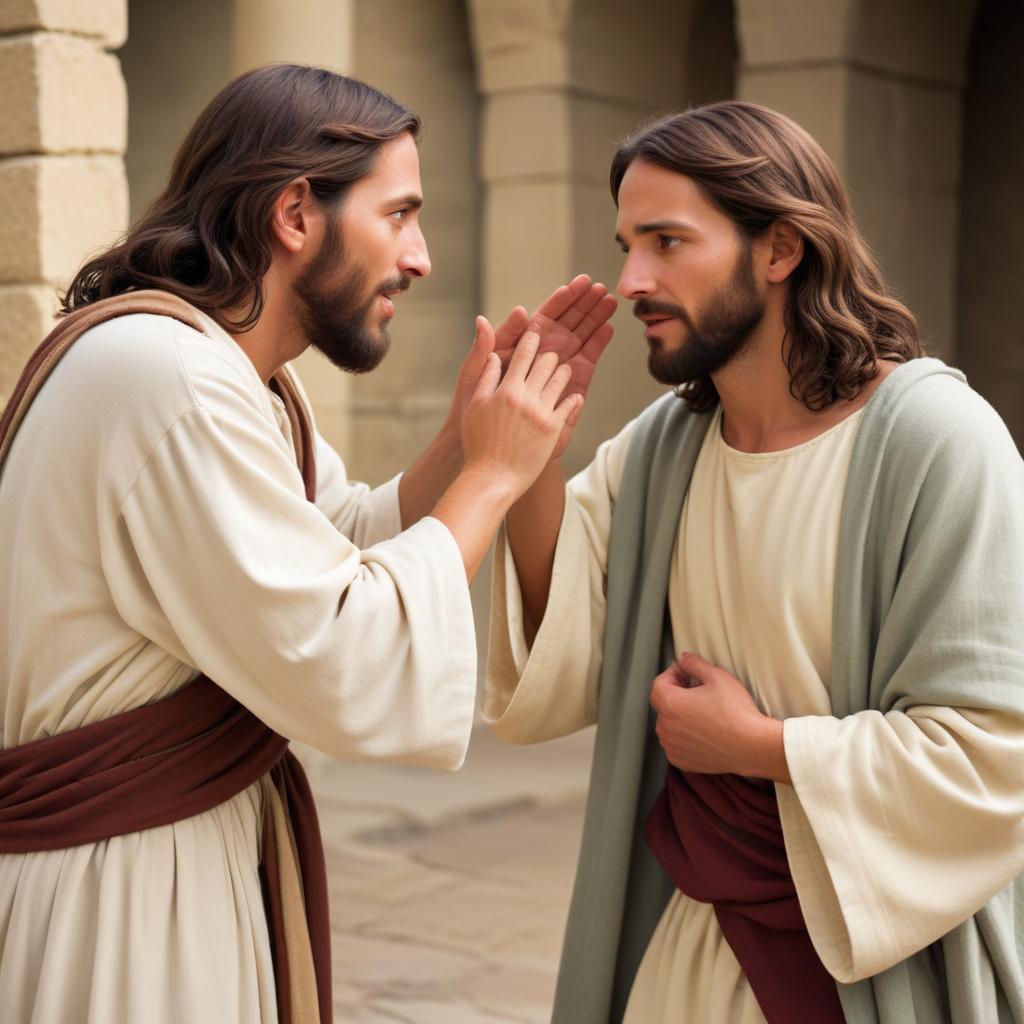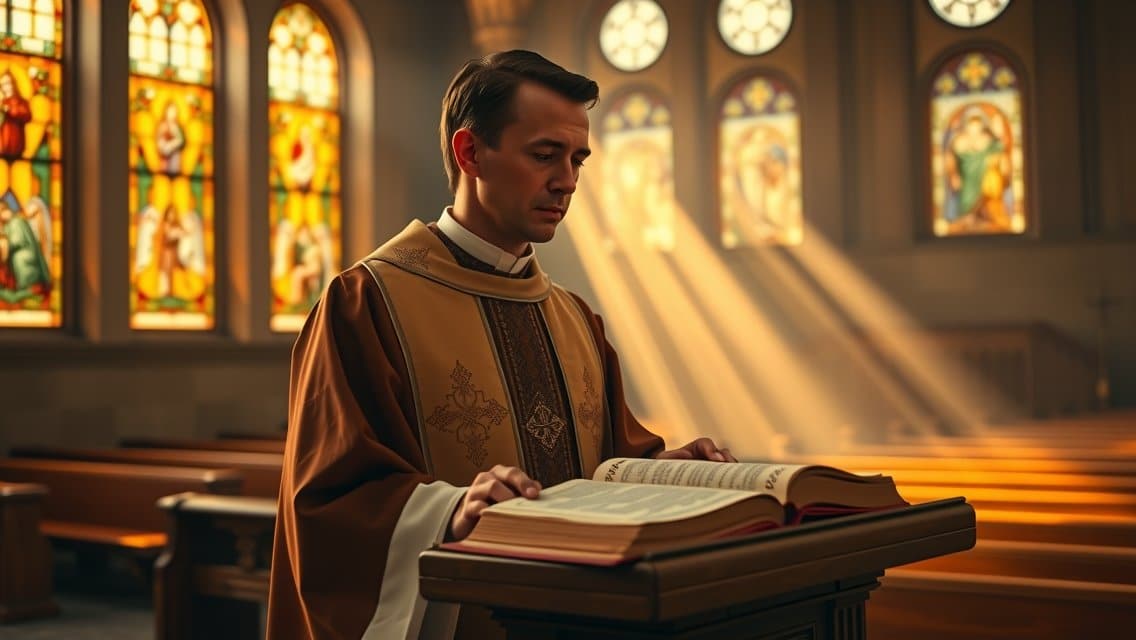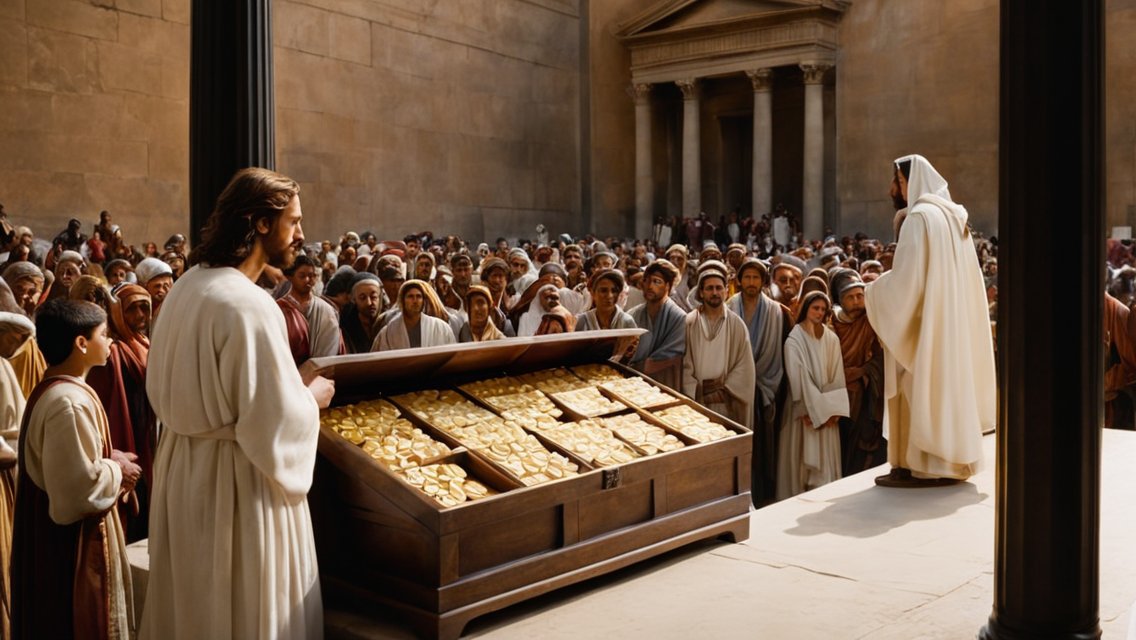Twenty-third Sunday Homily of the Ordinary Time – Year B
Readings: Isa 35:4-7, Jas 2:14-l8, Mk 7:3l-37
1st Reading – Isaiah 35:4-7A
Thus says the LORD:
4 Say to those whose hearts are frightened: Be strong, fear not! Here is your God, he comes with vindication; with divine recompense he comes to save you.
5 Then will the eyes of the blind be opened, the ears of the deaf be cleared;
6 then will the lame leap like a stag, then the tongue of the mute will sing. Streams will burst forth in the desert, and rivers in the steppe.
7 The burning sands will become pools, and the thirsty ground, springs of water.
Responsorial Psalm – Psalms 146:6-7, 8-9, 9-10
R. (1b) Praise the Lord, my soul!
or:
R. Alleluia.
6 The God of Jacob keeps faith forever,
7 secures justice for the oppressed,
gives food to the hungry.
The LORD sets captives free.
R. Praise the Lord, my soul!
or:
R. Alleluia.
8 The LORD gives sight to the blind;
the LORD raises up those who were bowed down.
The LORD loves the just;
9A the LORD protects strangers.
R. Praise the Lord, my soul!
or:
R. Alleluia.
9B The fatherless and the widow the LORD sustains,
but the way of the wicked he thwarts.
10 The LORD shall reign forever;
your God, O Zion, through all generations. Alleluia.
R. Praise the Lord, my soul!
or:
R. Alleluia.
2nd Reading – James 2:1-5
1 My brothers and sisters, show no partiality as you adhere to the faith in our glorious Lord Jesus Christ.
2 For if a man with gold rings and fine clothes comes into your assembly, and a poor person in shabby clothes also comes in,
3 and you pay attention to the one wearing the fine clothes and say, “Sit here, please, ” while you say to the poor one, “Stand there, ” or “Sit at my feet, ”
4 have you not made distinctions among yourselves and become judges with evil designs?
5 Listen, my beloved brothers and sisters. Did not God choose those who are poor in the world to be rich in faith and heirs of the kingdom that he promised to those who love him?
Alleluia – CF. Matthew 4:23
R. Alleluia, alleluia.
23 Jesus proclaimed the Gospel of the kingdom
and cured every disease among the people.
R. Alleluia, alleluia.
Gospel – Mark 7:31-37
31 Again Jesus left the district of Tyre and went by way of Sidon to the Sea of Galilee, into the district of the Decapolis.
32 And people brought to him a deaf man who had a speech impediment and begged him to lay his hand on him.
33 He took him off by himself away from the crowd. He put his finger into the man’s ears and, spitting, touched his tongue;
34 then he looked up to heaven and groaned, and said to him, “Ephphatha!” – that is, “Be opened!”
35 And immediately the man’s ears were opened, his speech impediment was removed, and he spoke plainly.
Homily
Ephphatha! Be Opened!
“The eyes of the blind shall be opened, the ears of the
deaf unsealed, the lame shall leap like a deer” (Isa)
When today’s gospel is used in its liturgy, the Church of England celebrates ‘Ephphatha Sunday’ which we could loosely translate as ‘Opening Sunday’. It might help us today to open up the various areas of our life and the ailments of our bodies that require Abba’s blessing. Jesus’ healing touch and the empowering breath of the Holy Spirit.
“Ephphatha! Be opened!” is Jesus’ command that Opens the ears of the deaf man, opens his mouth and loosens his tongue. This is one of the two miracle stories peculiar to the gospel of Mark (the other one being that of the blind man at Bethsaida in Mk 8:22-26). In these two healings, Jesus not only utters the word of healing, but also uses gestures like putting his fingers/hand to the man’s ears/eyes, touching his tongue/eyes and putting spittle onto the affected organs. These scenes seem almost ‘sacramental’ with Jesus’ use of touch, gestures, material and words.
The first reading from Isaiah is significant because the early Church sees the ministry of Jesus as the fulfillment of the messianic healings. When God comes, “the eyes of the blind shall be opened, the ears of the deaf unsealed and the lame shall leap like a deer.” Old Testament passages like this one, as well as Isa 29:18 & 61: l-3, find reechoing in the New Testament healings of Jesus.
The psalm (146) once again praises God, for Yahweh heals. The psalm mentions opening the fetters of prisoners and opening the eyes of the blind, but is silent about opening the ears of the deaf and the mouths of the dumb. Nonetheless, this may be taken as implied.
It is interesting to note that the gospel of Mark not only refers to a ‘physical deafness’ of the man healed, but also to a symbolic ‘spiritual deafness’ of the disciples, They listen to Jesus’ words, but do not hear and do not heed them. Indeed, only in the next chapter (i.e., next Sunday’s gospel) will the disciples partly understand who Jesus is with Peter, the spokesman, confessing, “You are the Messiah!”
Isn’t it dreadful to be deal? Helen Keller who was both blind and deaf-dumb considered deafness to be a far greater handicap than blindness. Understandably, people are sympathetic with visible handicaps like blindness or lameness. But, deaf and dumb people look perfectly normal and hardly receive support and sympathy.
An old, affectionate woman loved her aged husband very much. The old man was hard of hearing. On his birthday, the woman said to her husband, “Darling, I’m proud of you!” The old man barked, “What are you saying? Speak louder!” The old woman repeated, “I’m proud of you!” The man replied, “Oh, yes, I’m fed up of you too!”
Are we fed up of being deaf to Jesus’ sound advice, blind to the wonders of God’s creation and dumb when we must witness to the Spirit of truth? Then, let’s whisper, “Ephphatha! Be opened!” to each part of our body, and every avenue of our existence:
Be Opened, my eyes, may I see everything beautiful and The One who made it so, Ephphatha, all eyes, may we see the evil lurking behind structures and our role in it,
Be opened my ears, let the symphonies of Nature resound in the recesses of my soul, Ephphatha, all ears, let the cries of the poor and the powerless disturb our smugness,
Be opened, my mouth, to sing psalms and poems for the wonders God works today, Ephphatha, all mouths, to speak against untruth and injustice that silences the lowly,
Be opened, my heart, for the whole world to find some place and some space therein,
Ephphatha, all hearts, breaking down divisions of high-low, rich-poor, pure-impure,
May Ephphatha Sunday open all creatures to a new week, a new life, a new world.





